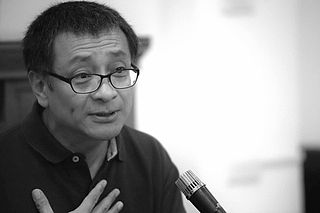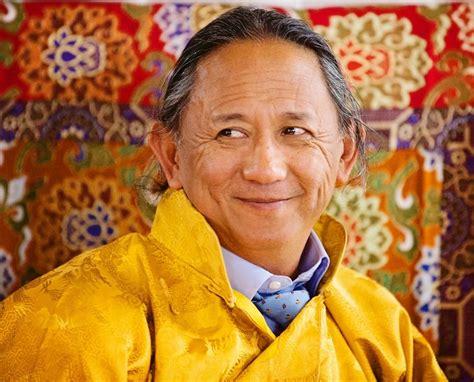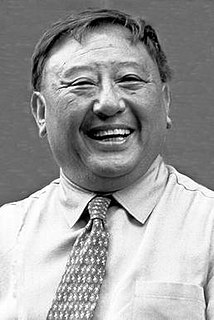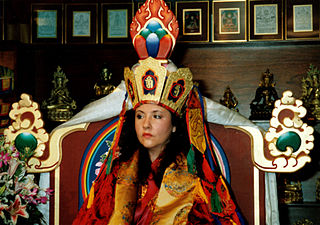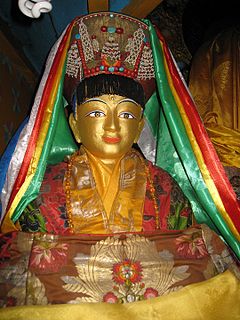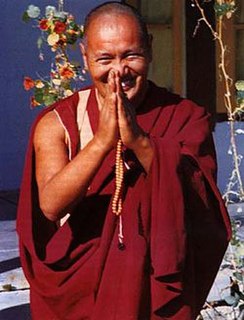A Quote by Dzogchen Ponlop Rinpoche
When we recognize that the seemingly object nature of reality is nothing different than the subject nature of mind, which is rigpa, it is called enlightenment.
Related Quotes
For us, mind has nature for its premise, being nature's truth and for that reason its absolute prius. In this truth nature has vanished, and mind has resulted as the idea arrived at being-for-itself, the object of which, as well as the subject, is the concept. This identity is absolute negativity, for whereas in nature the concept has its perfect external objectivity, this its alienation has been superseded, and in this alienation the concept has become identical with itself. But it is this identity therefore, only in being a return out of nature.
Developing the capacity for clear light dreams is similar to developing the capacity of abiding in the non-dual presence of rigpa during the day. In the beginning, rigpa and thought seem different, so that in the experience of rigpa there is no thought, and if thought arises we are distracted and lose rigpa. But when stabliity in rigpa is developed, thought simply arises and dissolves without in the least obscuring rigpa; the practitioner remains in non-dual awareness.
... Nothing resembles reality less than the photograph. Nothing resembles substance less than its shadow. To convey the meaning of something substantial you have to use not a shadow but a sign, not the limitation but the image. The image is a new and different reality, and of course it does not convey an impression of some object, but the mind of the subject; and that is something else again.
Enlightenment is construed as seeing things as they really are rather than as they appear; it is a direct insight into, and discernment of, the nature of reality that is apprehended only by wisdom, which transcends and is prior to the activity of discriminative thought. In this view, delusion is defined as all that is opposed to enlightenment.
There is no objective reality. But there is only an illusion of consciousness, there is only an objectivication of reality, which was created by the spirit. The origin of life is creativity, freedom; and the personality, subject, and spirit are the representatives of that origin, but not the nature, not the object.
The object of a dialogical-liberterian action is not to 'dislodge' the oppressed from a mythological reality in order to 'bind' them to another reality. On the contrary, the object of dialogical action is to make it possible for the oppressed, by perceiving their adhesion, to opt to transform an unjust reality." "In order for the oppressed to unite they must first cut the umbilical cord of magic and myth which binds them to the world of oppression; the unity which links them to each other must be of a different nature.
It is the Late city that first defies the land, contradicts Nature in the lines of its silhouette, denies all Nature. It wants to be something different from and higher than Nature. These high-pitched gables, these Baroque cupolas, spires, and pinnacles, neither are, nor desire to be, related with anything in Nature. And then begins the gigantic megalopolis, the city-as-world, which suffers nothing beside itself and sets about annihilating the country picture.
If all we know of mind is the aspect of mind that dissolves when we die, we will be left with no idea of what continues, no knowledge of the new dimension of the deeper reality of the nature of mind. So it is vital for us all to familiarize ourselves with the nature of mind while we are still alive. Only then will we be prepared for the time when it reveals itself spontaneously and powerfully at the moment of death; be able to recognize it "as naturally," the teachings say, "as a child running into its mother's lap"; and by remaining in that state, finally be liberated.
Again, if the world is destroyed, it must needs either be destroyed according to nature or against nature. Against nature is impossible, for that which is against nature is not stronger than nature. If according to nature, there must be another nature which changes the nature of the world: which does not appear.
